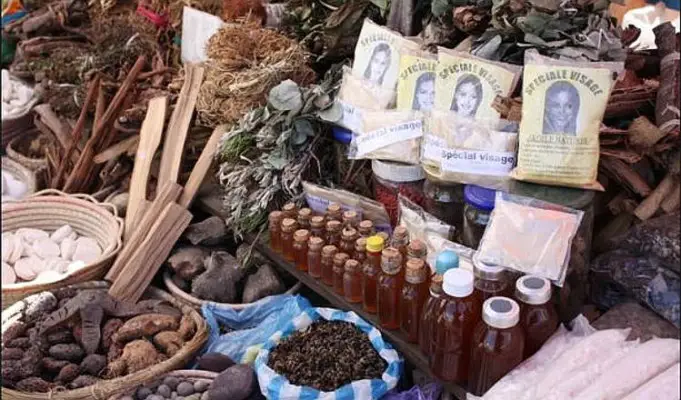In the Nigeria and worldwide, the use of “complementary” and “alternative” medicine is increasing, and has resulted in major non-reimbursed medical or health-related consumer expenditures. The use of traditional healing remedies for ailments has always been part of human culture.
Diseases have been recognized as a major problem and have been attributed to several agents such as witchcraft, breaking of taboos and mystical diseases in the past which resulted to our ancestors sourcing cures for these ailments from the environment and at the same time shaping the environment to meet their needs.
With the advent of colonialism and modern medicine, these ancient cultural practices have been widely criticized and termed as being “backwards” and “obsolete” by Western scholars.
This premise is principally based on the assumption that most traditional healers practice magic, witchcraft and necromancy. Traditional healing systems have also been criticized on the basis that the practitioners are illiterates and are not capable of fully understanding the human anatomy.
Furthermore, the practitioners do not adhere to the rule of hygiene and administration of herbal drugs may not be on the right dosages because they do not have the technology to determine drug dosage.
In spite of the rapid growth in the development and spread of modern medicine, traditional knowledge on the use of plants continues to be the most popular alternative to health problems in Nigeria.
More so, the uneven distribution of health personnel between rural and urban areas has left the rural dwellers with virtually no alternative than to patronize the traditional practitioners.
The traditional medicine program of the World Health Organization (WHO) defines traditional medicine as the sum of all knowledge and practices whether explicable or in explicable used in diagnosis, elimination and prevention of social, physical and mental imbalance and relying exclusively on practical experience and observation handed down from generation to generation whether verbally or written.
A study by the Roll Back Malaria Initiative in Nigeria, herbal medicine is the first choice for home treatment of nearly two thirds of children with high fever.
The new health agenda in Nigeria and Africa focuses on the institutionalization of tradition medicine in parallel with orthodox medicine into the natural health care scheme in order to move the health agenda forwards since, effective health cannot be in Africa by orthodox medicine alone unless it has been complemented with traditional medicine.
Traditional medicine is the go-to for a majority of the Nigerian population as a lot are not privileged enough to have access to good health care. Although it seems archaic, people have managed to find sophisticated uses of various plants.
Traditional medicine has been known to treat chronic illnesses such as epilepsy, hypertension, diabetes mellitus, cancer, sickle cell anaemia, asthma and malaria with malaria being the commonest.
Malaria is a common public health problem in Nigeria that may adversely affect both human and capital resources. Common local medicines in Nigeria include Agbo jedi-jedi, Agbo iba, Oroki herbal mixture, Yoyo bitters, and Alomo bitters.
The advantages of Traditional therapies include its diversity and flexibility; its availability and affordability in many parts of the world; its widespread acceptance in low- and middle- income countries; it’s comparatively low cost; and the relatively low level of technological input required.
As a result, Traditional therapies have the potential to contribute to a better health care system in many countries. However, there is a need for an increase in research to improve the evidence base as regards the efficacy of most traditional therapies.
Measures needed to facilitate research efforts include the legal recognition of traditional medicine, an increase in funding for research, the development of appropriate research methods for evaluating some traditional therapies, and the development of systems for intellectual property rights protection.
Traditional medication therapies are commonly used as self-care treatments. However, Traditional products are unregulated in many countries, and therefore many of the concerns about the risks for consumers relate to the safety and quality of Traditional medicinal products.
Reported problems include sales of in¬correct plant species and the contamination and adulteration of Traditional medication therapies.
The role of traditional medicine through the years cannot be over-emphasized as it has evolved to meet the needs of the average Nigerian.
The future of traditional medicine requires participation from both the Nigerian government and various health institutions such as the Nigerian Agency for Food and Drug Administration (NAFDAC) and the Nigerian Drug Law Enforcement Agency (NDLEA).
Public enlightenment programme, in the form of health education about safe use of herbal medicines, may be a useful means of minimizing the potential adverse effects of traditional medicine.












